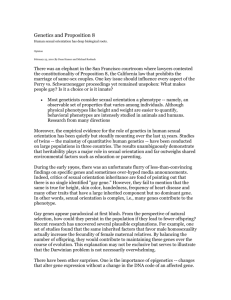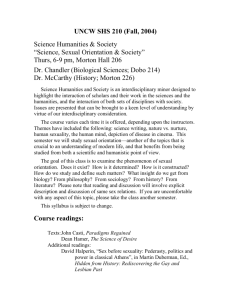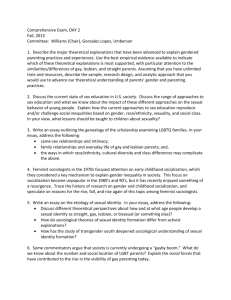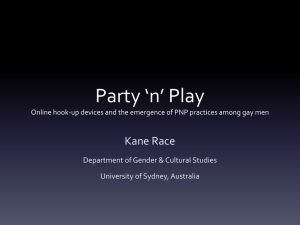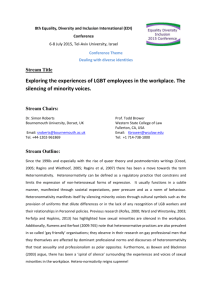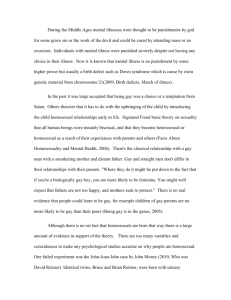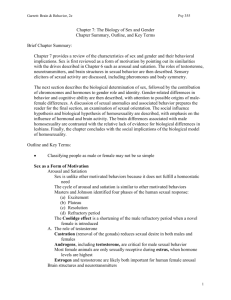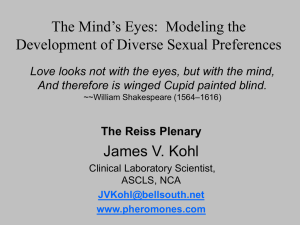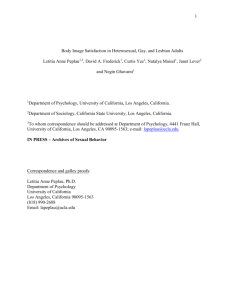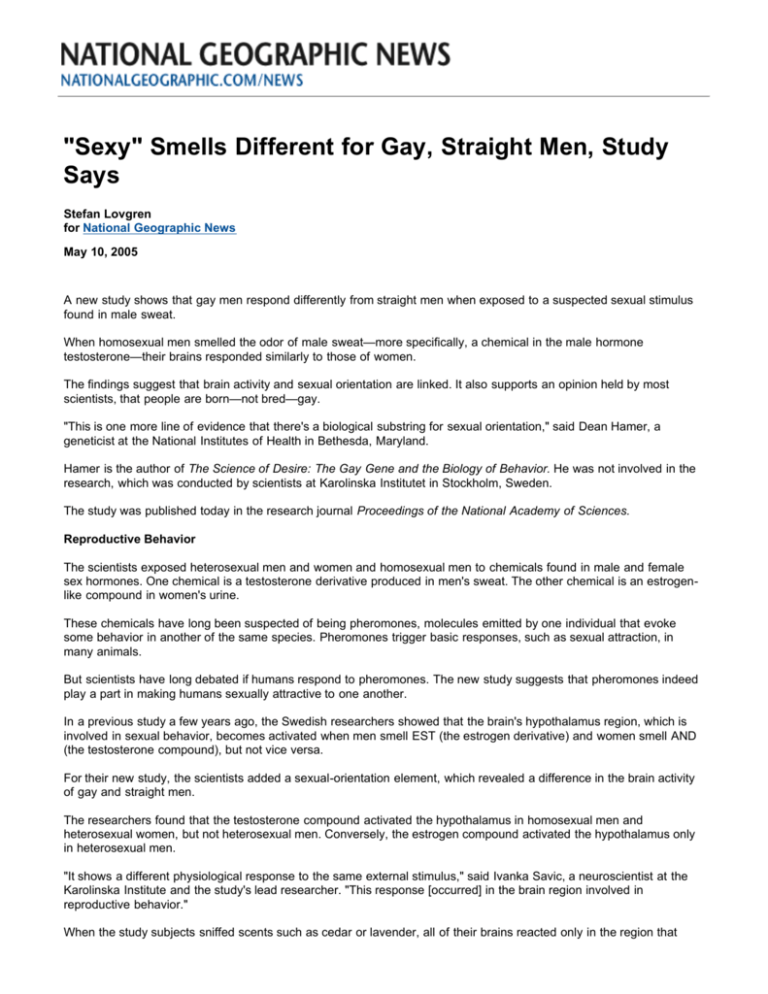
"Sexy" Smells Different for Gay, Straight Men, Study
Says
Stefan Lovgren
for National Geographic News
May 10, 2005
A new study shows that gay men respond differently from straight men when exposed to a suspected sexual stimulus
found in male sweat.
When homosexual men smelled the odor of male sweat—more specifically, a chemical in the male hormone
testosterone—their brains responded similarly to those of women.
The findings suggest that brain activity and sexual orientation are linked. It also supports an opinion held by most
scientists, that people are born—not bred—gay.
"This is one more line of evidence that there's a biological substring for sexual orientation," said Dean Hamer, a
geneticist at the National Institutes of Health in Bethesda, Maryland.
Hamer is the author of The Science of Desire: The Gay Gene and the Biology of Behavior. He was not involved in the
research, which was conducted by scientists at Karolinska Institutet in Stockholm, Sweden.
The study was published today in the research journal Proceedings of the National Academy of Sciences.
Reproductive Behavior
The scientists exposed heterosexual men and women and homosexual men to chemicals found in male and female
sex hormones. One chemical is a testosterone derivative produced in men's sweat. The other chemical is an estrogenlike compound in women's urine.
These chemicals have long been suspected of being pheromones, molecules emitted by one individual that evoke
some behavior in another of the same species. Pheromones trigger basic responses, such as sexual attraction, in
many animals.
But scientists have long debated if humans respond to pheromones. The new study suggests that pheromones indeed
play a part in making humans sexually attractive to one another.
In a previous study a few years ago, the Swedish researchers showed that the brain's hypothalamus region, which is
involved in sexual behavior, becomes activated when men smell EST (the estrogen derivative) and women smell AND
(the testosterone compound), but not vice versa.
For their new study, the scientists added a sexual-orientation element, which revealed a difference in the brain activity
of gay and straight men.
The researchers found that the testosterone compound activated the hypothalamus in homosexual men and
heterosexual women, but not heterosexual men. Conversely, the estrogen compound activated the hypothalamus only
in heterosexual men.
"It shows a different physiological response to the same external stimulus," said Ivanka Savic, a neuroscientist at the
Karolinska Institute and the study's lead researcher. "This response [occurred] in the brain region involved in
reproductive behavior."
When the study subjects sniffed scents such as cedar or lavender, all of their brains reacted only in the region that
handles smells—not sexual behavior.
Biological Explanation
The results show that the human brain reacts differently to potential pheromones compared with common odors.
"It directly shows a link between brain activity and sexual orientation," said Hamer, the NIH geneticist.
Hamer cautions that the gay men's different brain activity could be either a cause of their sexual orientation or an effect
of it. But, he said, "it certainly seems unlikely that somehow being interested in men would cause the brain to rewire
itself in such a dramatic way."
Other studies have also found that gay and straight men respond differently to the body odors of others.
Scientists at the Monell Chemical Senses Center in Philadelphia, Pennsylvania, found that gay men preferred odors
from other gay men, while odors from gay men were the least preferred by straight men and women.
The Monell Center's results were released yesterday and are to be published in the journal Psychological Science in
September.
"There are many ongoing studies in the field, and I think that we soon will have better clarification," said Savic, the
Karolinska Institute neuroscientist. "At the moment, there are no definite proofs."
However, the new studies boost the hypothesis that homosexuality has a genetic basis and is not simply the result of
learned behavior.
"This, incidentally, is not in any way controversial for biologists," Hamer said. "It's completely expected from the basic
tenets of biology. It's only controversial because of the social and political controversy over homosexuality."
Free E-Mail News Updates
Sign up for our Inside National Geographic newsletter. Every two weeks we'll send you our top stories and pictures
(see sample).
© 1996-2008 National Geographic Society. All rights reserved.

